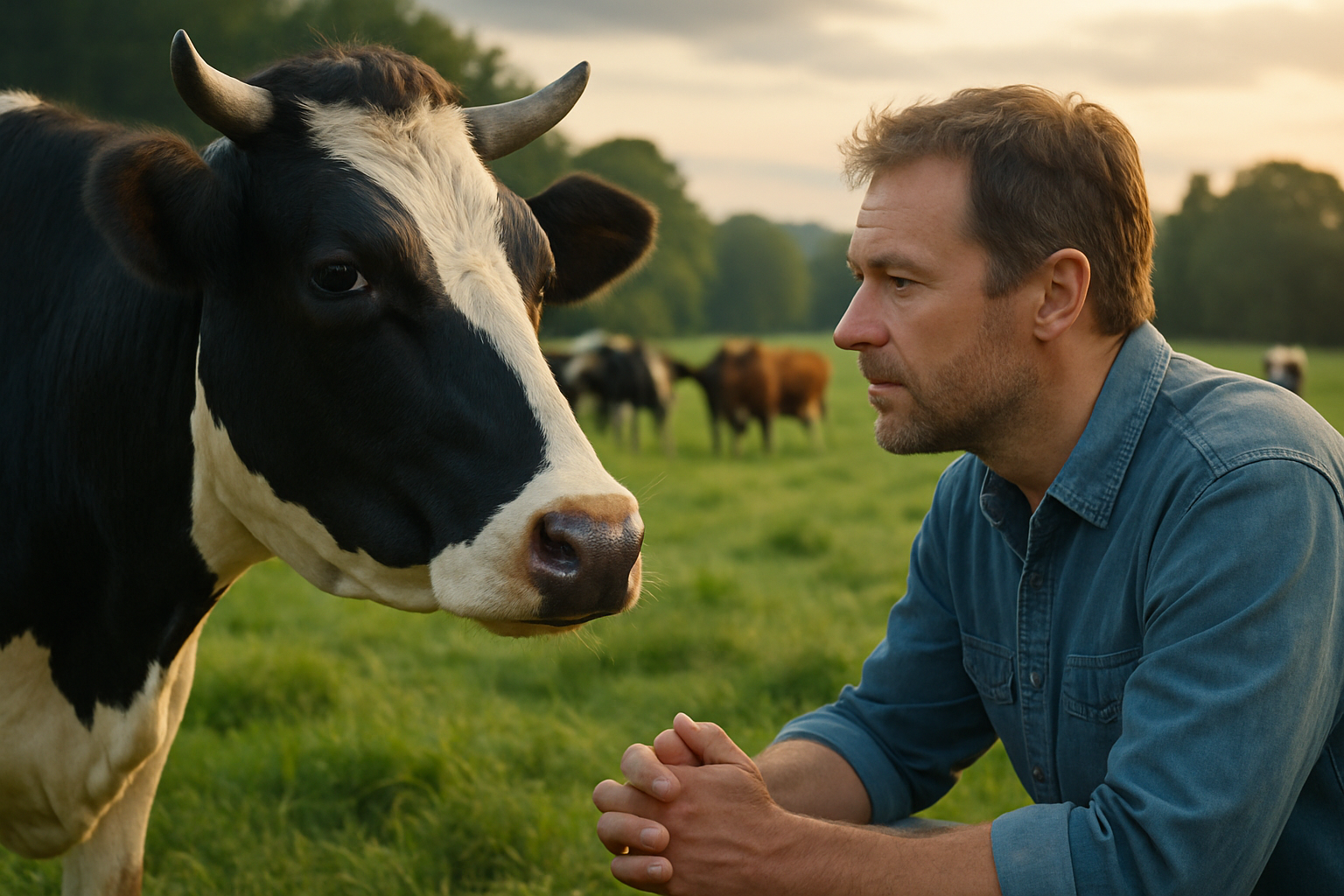The Surprising Intelligence of Cows: A Deep Dive into Bovine Behavior
For centuries, cows have been vital to human survival primarily due to their utility as domesticated animals. This relationship, while beneficial, has often limited our understanding of these creatures to their economic value, overshadowing their rich behavioral and cognitive capabilities. This article peels back the layers of bovine behavior, revealing a surprising degree of intelligence and emotional complexity that extends far beyond the pasture.

A Historical Perspective on Cows
Cattle domestication dates back to approximately 10,500 years ago, marking one of the first instances of humans taming and using animals for survival. This event played a crucial role in the advent of human civilization, enabling the transition from hunter-gatherer societies to settled farming communities. However, the utilitarian relationship between humans and cattle has often eclipsed the recognition of cows as sentient beings with their own individual behaviors and emotional experiences.
A New Understanding of Bovine Intelligence
Recent research has begun to shift this perspective, presenting compelling evidence of bovine intelligence. For instance, a study conducted by the University of British Columbia found that cows possess a distinct problem-solving ability and demonstrate learning behavior. When faced with a challenge, such as reaching food through a barrier, cows exhibited signs of ‘Eureka’ moments, indicating a degree of cognitive sophistication.
The Emotional Lives of Cows
Alongside their cognitive abilities, cows also possess a rich emotional life. Research has shown that cows form strong bonds with their herd, showing signs of distress when separated from their companions. They also express a range of emotions through vocalizations and body language, from fear and stress to contentment and excitement.
The Economic Implications of Bovine Intelligence
Understanding the complex behavior and emotional lives of cows has significant implications for the livestock industry. Stress and poor welfare conditions can negatively impact a cow’s milk production and growth rates. Therefore, recognizing and catering to their cognitive and emotional needs can result in better animal welfare and increased productivity.
The Future of Bovine Research
While the research into bovine cognition and emotions is still in its early stages, these findings have started to challenge our traditional perceptions of cows. They serve as a reminder that cows are not just commodities, but sentient beings deserving of respect and humane treatment.
In conclusion, the narrative surrounding cows is evolving, and it’s high time that we, as a society, start to appreciate their intelligence and emotional complexity. As we continue to broaden our understanding of bovine behavior, we might be surprised at what we find, leading to a deeper appreciation for these humble creatures that have been an integral part of human history.





